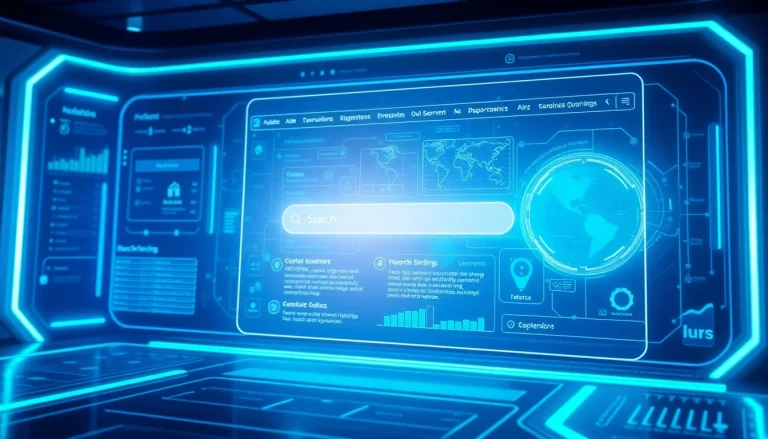
Understanding Agentic AI
In the rapidly advancing landscape of artificial intelligence, one term that is gaining significant attention is Agentic AI. Defined as a type of AI system that operates with a degree of autonomy, Agentic AI performs tasks and makes decisions without the need for constant human intervention. Unlike traditional AI models, which often depend heavily on user input and specified workflows, Agentic AI can navigate complex environments and solve multi-step problems through sophisticated reasoning and planning. This foundational shift in AI’s capabilities holds great potential for various industries, including healthcare, finance, manufacturing, and customer service.
Definition and Key Features
Agentic AI is characterized by its ability to act as an autonomous agent that can analyze data, learn from past experiences, and adapt to new situations in real-time. Key features include:
- Autonomous Decision-Making: Unlike traditional AI, Agentic AI does not require ongoing human oversight to make decisions. It can achieve complex goals independently.
- Learning and Adaptability: These systems continuously improve their decision-making processes by learning from new data and feedback.
- Multi-Step Problem Solving: Agentic AI can break down significant challenges into smaller, manageable tasks and develop strategies to address them effectively.
Comparison with Traditional AI
To understand the significance of Agentic AI, it’s crucial to compare it with traditional AI systems:
| Attribute | Traditional AI | Agentic AI |
|---|---|---|
| Decision-Making | Dependent on explicit human input and guidelines | Autonomous decisions based on context and data |
| Task Completion | Completes predefined tasks | Identifies and takes initiative in multi-step situations |
| Learning Capability | Limited; often relies on supervised learning | Dynamic; learns from real-time data and interactions |
| Examples | Chatbots, recommendation systems | Robotic process automation, autonomous vehicles |
Real-World Applications
The potential applications for Agentic AI are vast and varied. Here are some prominent fields utilizing this technology:
- Healthcare: Agentic AI is transforming patient management by autonomously scheduling appointments, monitoring health metrics, and even diagnosing conditions by analyzing medical data.
- Finance: In the financial sector, these AI systems can autonomously manage portfolios, execute trades based on market conditions, and even detect fraudulent activities.
- Manufacturing: Factories are increasingly using Agentic AI to optimize supply chains, manage inventory, and predict maintenance needs, enhancing overall efficiency.
- Customer Service: Companies leverage Agentic AI solutions to manage customer inquiries, process orders, and provide personalized experiences without human intervention.
Technical Foundations of Agentic AI
Agentic AI relies on a complex interplay of algorithms and technologies designed to give it the intelligence and adaptability necessary for effective decision-making. Understanding these technical foundations is key to appreciating how this advanced AI operates.
Core Algorithms and Technologies
The backbone of Agentic AI includes several advanced algorithms and techniques:
- Reinforcement Learning: This machine learning paradigm allows AI to learn by interacting with its environment, making decisions that maximize a reward function over time.
- Neural Networks: Deep learning techniques enable processing vast amounts of unstructured data, enhancing the AI’s ability to recognize patterns and make informed decisions.
- Probabilistic Models: These models account for uncertainty in decision-making, making Agentic AI more robust in unpredictable environments.
Learning Mechanisms and Adaptability
Agentic AI systems utilize a variety of mechanisms to adapt and learn:
- Online Learning: This approach involves updating models continuously as new data becomes available, ensuring that the AI remains relevant and informed.
- Transfer Learning: By applying knowledge gained in one context to new but related situations, Agentic AI can accelerate learning in diverse scenarios.
- Human-in-the-Loop Systems: While Agentic AI can operate autonomously, it can also benefit from human feedback to improve its learning curve and decision accuracy.
Integration with Existing Systems
Implementing Agentic AI requires seamless integration with existing technological infrastructures:
- APIs and Microservices: These allow Agentic AI to communicate with other software systems, enhancing its data access and operational capabilities.
- Cloud Computing: Utilizing cloud platforms boosts scalability and accessibility for Agentic AI, allowing it to perform complex computations efficiently.
- Data Lakes: Large repositories of raw data enable the continuous data flow necessary for real-time AI learning and adaptability.
Benefits of Implementing Agentic AI
The adoption of Agentic AI presents numerous advantages across various industries. Here, we explore some of the most significant benefits.
Increased Efficiency and Productivity
One of the most compelling reasons for integrating Agentic AI is its ability to enhance operational efficiency. By taking over repetitive tasks, these systems free up human workers to focus on higher-level responsibilities, leading to better resource allocation and increased productivity:
- Automation of Routine Tasks: Agentic AI can handle simple tasks, allowing staff to concentrate on strategic planning and creative problem-solving.
- Faster Data Processing: With the capability to analyze large datasets in real-time, Agentic AI can provide insights and recommendations much quicker than human analysts.
Cost-Effectiveness
Implementing Agentic AI can lead to significant cost reductions:
- Reduced Labor Costs: With AI taking over many tasks traditionally performed by humans, businesses can operate with leaner teams without sacrificing performance.
- Minimized Operational Errors: By making data-driven decisions, Agentic AI helps reduce errors associated with human oversight, ultimately saving costs associated with rectifying mistakes.
Enhanced Decision-Making Capabilities
Agentic AI not only executes tasks but also plays a vital role in improving decision-making:
- Data-Driven Insights: By processing and analyzing data autonomously, Agentic AI uncovers hidden patterns that can inform strategic decisions.
- Real-Time Responses: In high-stakes environments such as finance and healthcare, the speed at which Agentic AI can assess situations and react is crucial for maintaining competitiveness.
Challenges and Considerations
Despite its remarkable capabilities, the implementation of Agentic AI is not without challenges. Organizations must carefully consider the following aspects:
Ethical Implications
The rise of autonomous AI systems raises important ethical questions:
- Accountability: When decisions are made autonomously, it becomes challenging to determine who is responsible for outcomes—this complicates accountability protocols.
- Bias and Fairness: Ensuring that the algorithms used in Agentic AI are free from bias is critical to preventing discrimination and ensuring fairness in decision-making.
Technical Limitations
Technical challenges are inherent in the development of Agentic AI:
- Data Quality: The effectiveness of Agentic AI is heavily dependent on the data it is trained on. Poor quality or biased data can lead to ineffective or harmful decisions.
- Complexity of Integration: Merging new AI systems with existing processes can be complex, requiring time and resources for proper implementation.
Human Collaboration and Oversight
While Agentic AI can operate autonomously, human oversight remains important:
- Complementary Roles: Humans and AI need to work in tandem, with humans providing context and ethical considerations when AI systems operate in uncertain situations.
- Training and Skill Development: Organizations must invest in training employees to work alongside AI systems, ensuring they understand the technology and can leverage it effectively.
Future Trends in Agentic AI Development
The future of Agentic AI holds immense promise for transformative advancements across industries. Here are some anticipated trends:
Predicted Advances and Innovations
As technology evolves, we can expect significant innovations in Agentic AI:
- Improved Algorithms: As machine learning techniques advance, we anticipate more sophisticated algorithms that enhance the decision-making capabilities of Agentic AI.
- Interoperability: Enhanced interoperability between AI systems will allow for more integrated workflows across various platforms, enhancing efficiency.
Impact on Workforce Dynamics
The introduction of Agentic AI will lead to significant shifts in workforce dynamics:
- Job Transformation: While some roles may be displaced, many others will evolve, requiring new skills and offering employees the opportunity to engage in more meaningful work.
- New Job Creation: AI will create a demand for new skillsets, including AI maintenance, oversight, and data ethics specialists.
Long-Term Industry Transformations
Over time, we expect multiple industries to transform in profound ways:
- Streamlined Operations: AI-driven processes will lead to more streamlined operations, decreasing turnaround times and increasing customer satisfaction.
- Innovative Business Models: The efficacy of Agentic AI will enable businesses to explore novel business models that were once considered unfeasible.
In conclusion, the transformative potential of Agentic AI is immense, promising to reshape industries and reengineer how we approach problem-solving and decision-making. As companies adopt this technology, they must navigate its complexities and ethical implications carefully, ensuring that the benefits of autonomous AI are harnessed for the greater good.






